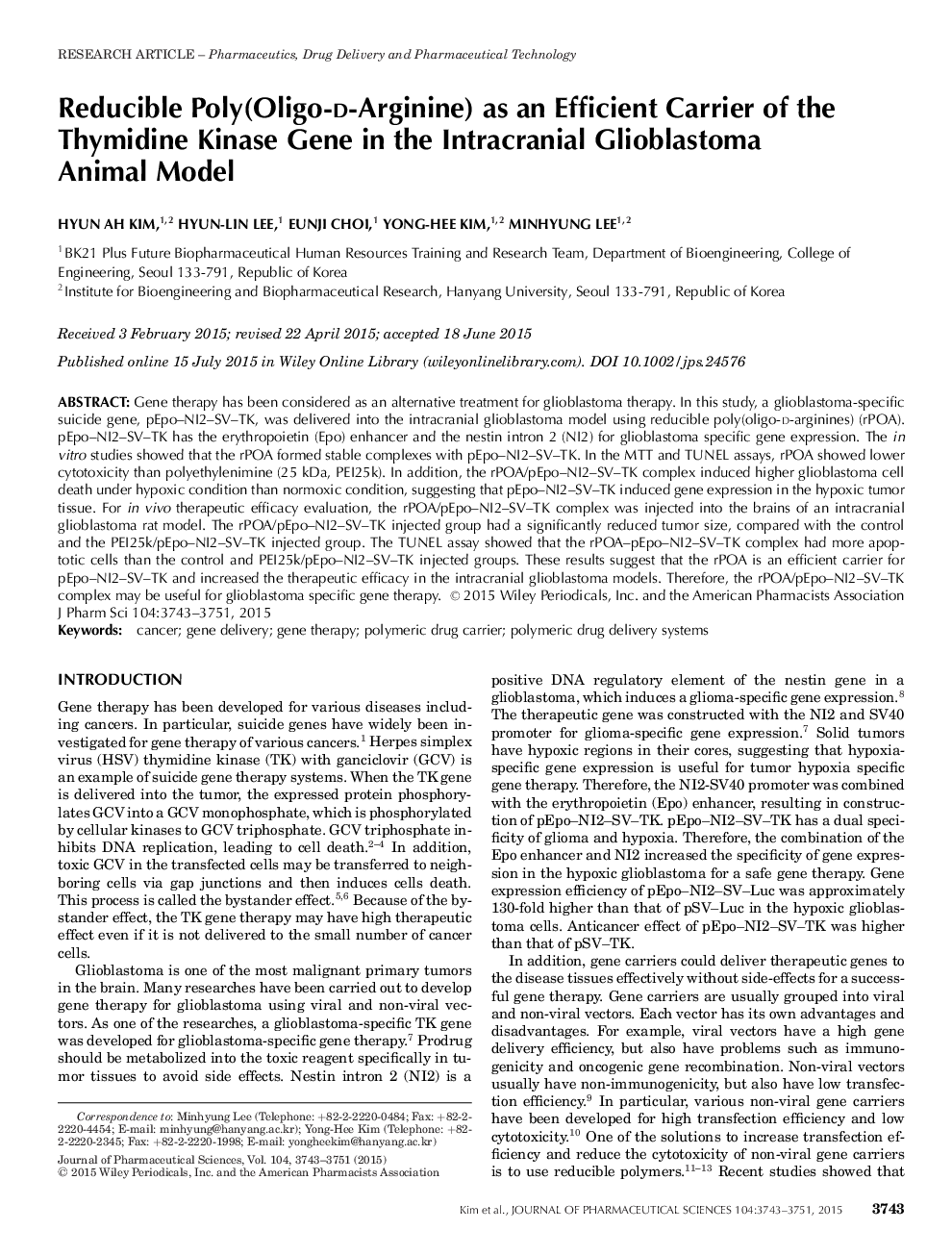| Article ID | Journal | Published Year | Pages | File Type |
|---|---|---|---|---|
| 10162212 | Journal of Pharmaceutical Sciences | 2015 | 9 Pages |
Abstract
Gene therapy has been considered as an alternative treatment for glioblastoma therapy. In this study, a glioblastoma-specific suicide gene, pEpo-NI2-SV-TK, was delivered into the intracranial glioblastoma model using reducible poly(oligo-d-arginines) (rPOA). pEpo-NI2-SV-TK has the erythropoietin (Epo) enhancer and the nestin intron 2 (NI2) for glioblastoma specific gene expression. The in vitro studies showed that the rPOA formed stable complexes with pEpo-NI2-SV-TK. In the MTT and TUNEL assays, rPOA showed lower cytotoxicity than polyethylenimine (25Â kDa, PEI25k). In addition, the rPOA/pEpo-NI2-SV-TK complex induced higher glioblastoma cell death under hypoxic condition than normoxic condition, suggesting that pEpo-NI2-SV-TK induced gene expression in the hypoxic tumor tissue. For in vivo therapeutic efficacy evaluation, the rPOA/pEpo-NI2-SV-TK complex was injected into the brains of an intracranial glioblastoma rat model. The rPOA/pEpo-NI2-SV-TK injected group had a significantly reduced tumor size, compared with the control and the PEI25k/pEpo-NI2-SV-TK injected group. The TUNEL assay showed that the rPOA-pEpo-NI2-SV-TK complex had more apoptotic cells than the control and PEI25k/pEpo-NI2-SV-TK injected groups. These results suggest that the rPOA is an efficient carrier for pEpo-NI2-SV-TK and increased the therapeutic efficacy in the intracranial glioblastoma models. Therefore, the rPOA/pEpo-NI2-SV-TK complex may be useful for glioblastoma specific gene therapy. © 2015 Wiley Periodicals, Inc. and the American Pharmacists Association. J Pharm Sci 104:3743-3751, 2015.
Related Topics
Health Sciences
Pharmacology, Toxicology and Pharmaceutical Science
Drug Discovery
Authors
Hyun Ah Kim, Hyun-Lin Lee, Eunji Choi, Yong-Hee Kim, Minhyung Lee,
